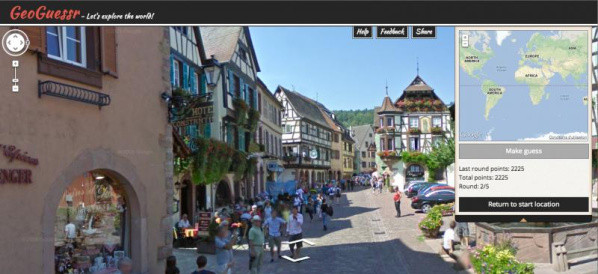 1 Terms
1 TermsHome > Terms > English (EN) > Hindus
Hindus
Hinduism first emerged in India as a complex constellation of religious systems. There is a long and checkered history of the spread of Hinduism outside India centuries before the emergence of the political nation as we know it today In 1893 Swami Vivekananda delivered a lecture about Hinduism at the first World Parliament of Religions in Chicago, IL. In more modern times, the growth of the Indian diaspora around the world led to a simultaneous spread of Hinduism outside India, most visibly as a set of cultural practices.
In the new millenium, one can conceivably study most of the world’s major religions in any of the metropolitan centers of the United States. The number of Asian Indians, a majority of them Hindus, in the United States has grown steadily since the Immigration and Naturalization Act of 1965, and stands at about 1 million today Hindu immigrants and their religious institutions struggled against considerable racial prejudice and discrimination before they began to be accepted as an integral part of American society.
Outside its land of origin, Hinduism has undergone several transformations unique to the diasporic condition of its practitioners, both in terms of ritual practices as well as in the role it plays in fostering and reinforcing community solidarity. As Raymond Brady Williams suggests, emigration involves a “crisis of epistemology” that focuses people’s attention on their traditions or narrative in order to establish a “known world” (Williams 1988). One way in which Hindu immigrant groups in different parts of the world attempt to resolve this crisis is by building temples and maintaining indigenous social and cultural activities in the new society Hundreds of Hindu temples and religious centers now dot the American landscape, enriching its multicultural milieu.
Many Indian immigrants indicate that they are more religiously active in the United States than in India. As distinctive identity markers religions, in particular, are mobilized and re-energized in the process of negotiating their identities in the new cultural environment. Hinduism, which was not an organized religion until the late nineteenth century in India, was considered to be more a philosophy and a way of life. Practice of Hinduism did not require visiting temples on a regular basis; rather, worshipping at home shrines was more important. However, in the United States, Hinduism quickly assumed a formal structure as fairly affluent, professional Indian immigrants, concerned about the socialization of their American Indian children, started establishing temples. Hindu temples in the United States are not only places of worship, but also serve as broader cultural centers that function as surrogate extended families to the community Large Hindu temples like the ones in Pittsburgh, PA, Houston, TX and Chicago, IL are traditional in their architectural style and aim to replicate rituals in as “authentic” a manner as possible. As in its country of origin, Hinduism in the US takes various ethnic and sectarian forms, displaying enormous diversity in its iconographic representations and ritual practices. Apart from temples, there are quasi-religious groups that congregate to propagate the teachings of various gurus and religious leaders. Newsletters, brochures and other ethnic mass media, along with rapidly proliferating web-sites on the Internet, aid in promoting horizontal communication among the believers.
While religion, in general, has helped community solidarity in a positive way, since the early 1980s Hinduism in the diaspora, as in the home country has become increasingly politicized. The World Hindu Council (Vishwa Hindu Parishad) has established branches all over the world and supports religious nationalist forces in India. They hold summer camps in various parts of the US to socialize second-generation American Indians from a very young age, and the Hindu Students’ Councils attempt to further that process on college campuses. Many progressive Indians in the diaspora have organized themselves to challenge this pernicious process to destroy the secular ethos of the modern Indian nation. The struggle between these forces within the diasporic community represents an intense contestation over issues of identity.
- Part of Speech: noun
- Synonym(s):
- Blossary:
- Industry/Domain: Culture
- Category: American culture
- Company: Routledge
- Product:
- Acronym-Abbreviation:
Other Languages:
Member comments
Terms in the News
Billy Morgan
Sports; Snowboarding
The British snowboarder Billy Morgan has landed the sport’s first ever 1800 quadruple cork. The rider, who represented Great Britain in the 2014 Winter Olympics in Sochi, was in Livigno, Italy, when he achieved the man-oeuvre. It involves flipping four times, while body also spins with five complete rotations on a sideways or downward-facing axis. The trick ...
Marzieh Afkham
Broadcasting & receiving; News
Marzieh Afkham, who is the country’s first foreign ministry spokeswoman, will head a mission in east Asia, the state news agency reported. It is not clear to which country she will be posted as her appointment has yet to be announced officially. Afkham will only be the second female ambassador Iran has had. Under the last shah’s rule, Mehrangiz Dolatshahi, a ...
Weekly Packet
Language; Online services; Slang; Internet
Weekly Packet or "Paquete Semanal" as it is known in Cuba is a term used by Cubans to describe the information that is gathered from the internet outside of Cuba and saved onto hard drives to be transported into Cuba itself. Weekly Packets are then sold to Cuban's without internet access, allowing them to obtain information just days - and sometimes hours - after it ...
Asian Infrastructure Investment Bank (AIIB)
Banking; Investment banking
The Asian Infrastructure Investment Bank (AIIB) is an international financial institution established to address the need in Asia for infrastructure development. According to the Asian Development Bank, Asia needs $800 billion each year for roads, ports, power plants or other infrastructure projects before 2020. Originally proposed by China in 2013, a signing ...
Spartan
Online services; Internet
Spartan is the codename given to the new Microsoft Windows 10 browser that will replace Microsoft Windows Internet Explorer. The new browser will be built from the ground up and disregard any code from the IE platform. It has a new rendering engine that is built to be compatible with how the web is written today. The name Spartan is named after the ...
Featured Terms
GeoGuessr
GeoGuessr is a web-based geographic discovery game designed by Anton Wallén, a Swedish IT consultant. The game utilizes random Google Street View ...
Contributor
Featured blossaries
Browers Terms By Category
- Contracts(640)
- Home improvement(270)
- Mortgage(171)
- Residential(37)
- Corporate(35)
- Commercial(31)
Real estate(1184) Terms
- Project management(431)
- Mergers & acquisitions(316)
- Human resources(287)
- Relocation(217)
- Marketing(207)
- Event planning(177)
Business services(2022) Terms
- General law(5868)
- Contracts(640)
- Patent & trademark(449)
- Legal(214)
- US law(77)
- European law(75)
Law(7373) Terms
- Printers(127)
- Fax machines(71)
- Copiers(48)
- Office supplies(22)
- Scanners(9)
- Projectors(3)
Office equipment(281) Terms
- Alcohol & Hydroxybenzene & Ether(29)
- Pigments(13)
- Organic acids(4)
- Intermediates(1)




